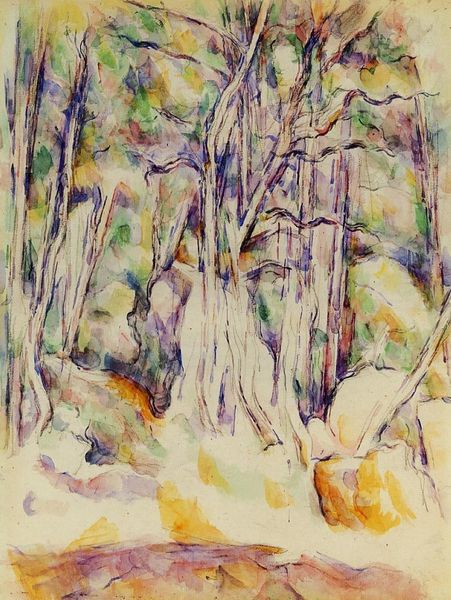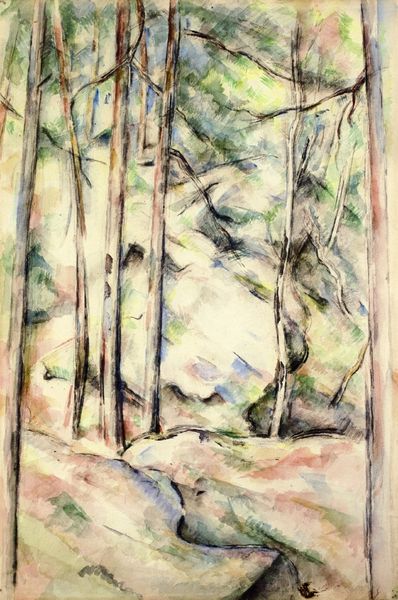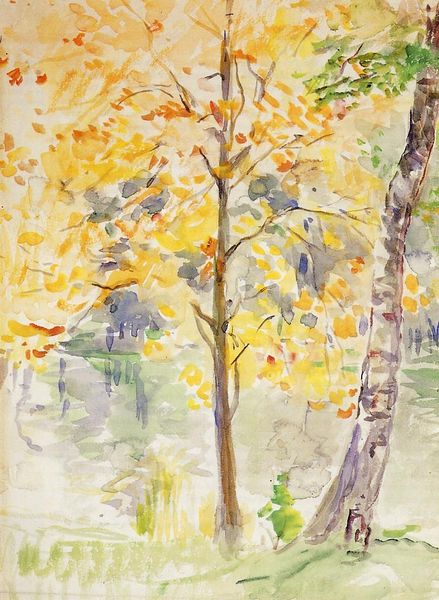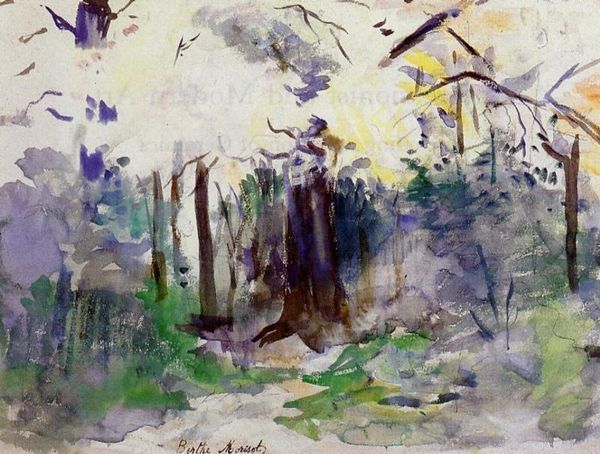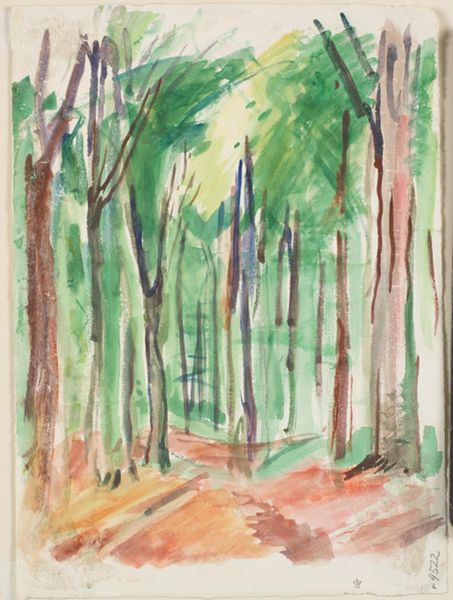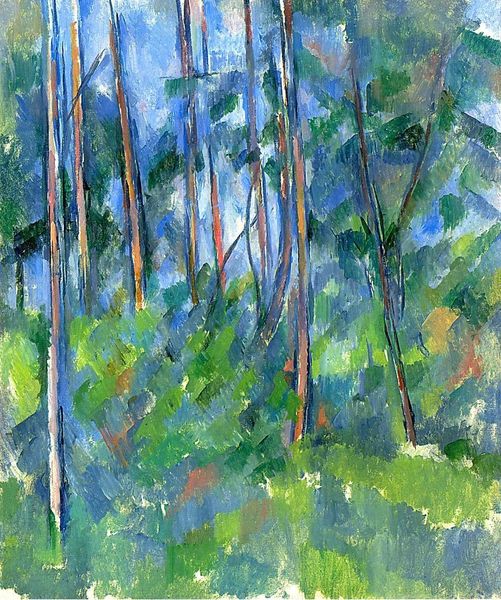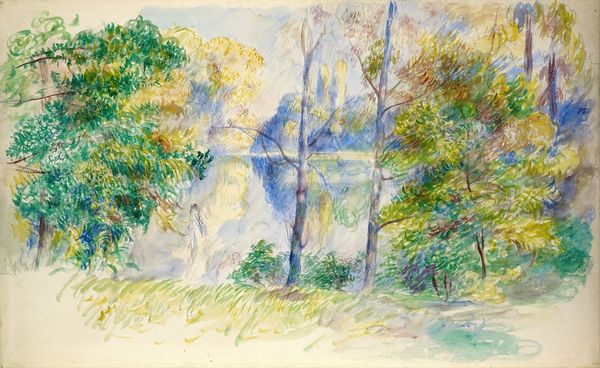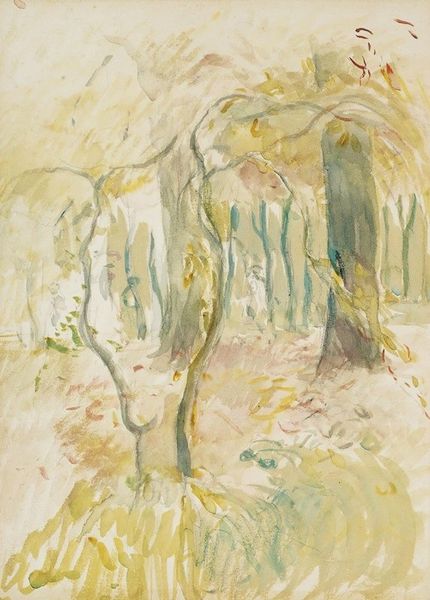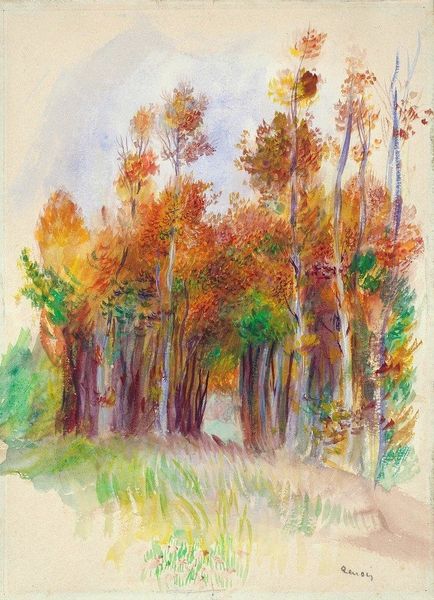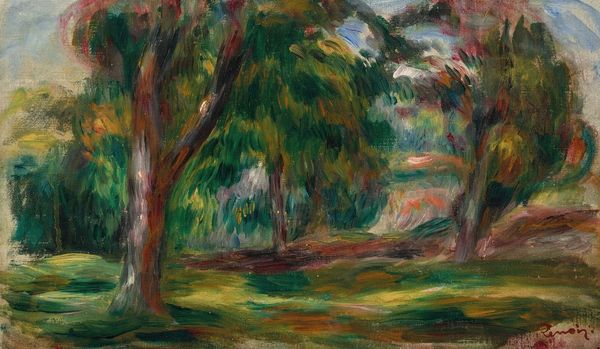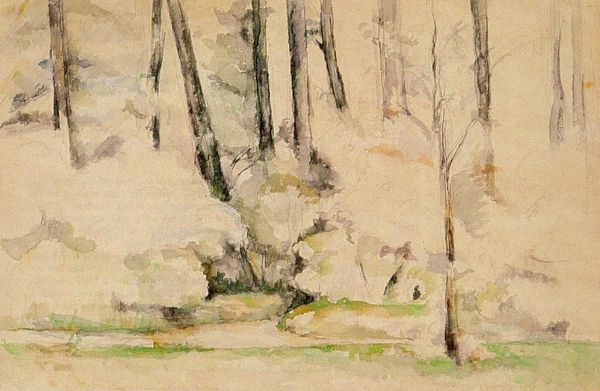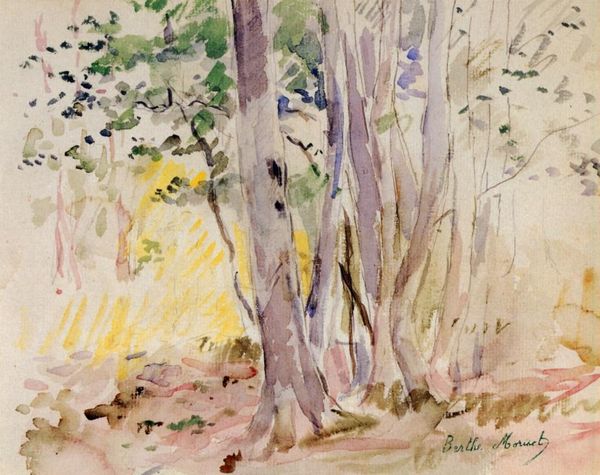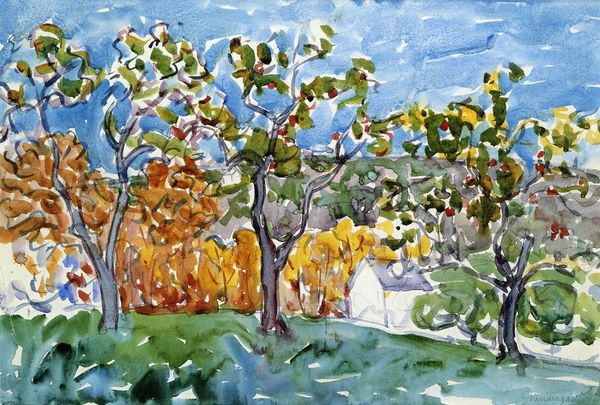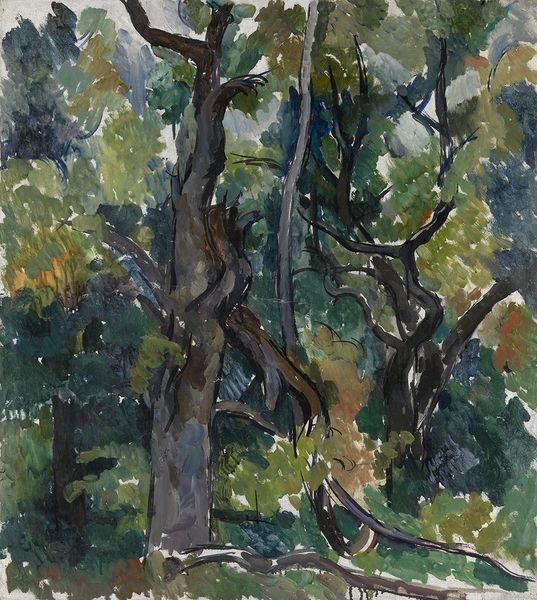
plein-air, watercolor
#
tree
#
plein-air
#
landscape
#
form
#
watercolor
#
line
#
post-impressionism
#
watercolor
Copyright: Public domain
Editor: We are looking at Paul Cézanne’s "In the Woods," made around 1900. It's a watercolor landscape. There's a delicate, almost unfinished quality to it that I find quite striking. What do you see in this piece? Curator: I see Cézanne grappling with representation, specifically in the context of landscape. The work is "en plein air" but doesn’t romanticize nature. It challenges the tradition of idealized landscapes prevalent in earlier art movements by stripping the scene down to its structural components. Editor: Structural components? Could you elaborate? Curator: Absolutely. Notice how Cézanne uses patches of color and simple lines. This approach dismantles traditional perspective, reflecting a broader trend among artists challenging academic conventions around the turn of the century, even questioning how systems privilege certain modes of seeing and knowing. Editor: It's like he's trying to understand the essence of the woods, not just paint a pretty picture. Do you think his use of watercolor contributed to this effect? Curator: Without a doubt. The transparency of watercolor allows for layering and blending, facilitating a sense of depth and atmosphere while simultaneously exposing the process of creation. It highlights the artificiality inherent in all representational practices. Consider the historical associations with watercolor; its portability made it a popular medium, one frequently employed for studies. What statements might Cézanne make by deploying this "minor" medium? Editor: So it’s less about faithfully depicting nature and more about deconstructing it and the very act of painting. That makes me appreciate the painting on a whole other level. Thank you! Curator: Indeed. Seeing beyond the surface, recognizing the social, political, and art historical contexts that shaped a work and vice-versa: it fundamentally changes our engagement with it.
Comments
No comments
Be the first to comment and join the conversation on the ultimate creative platform.
